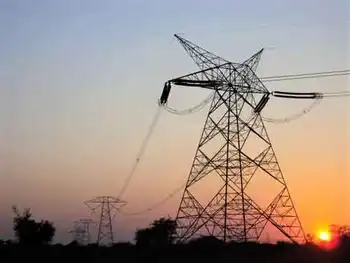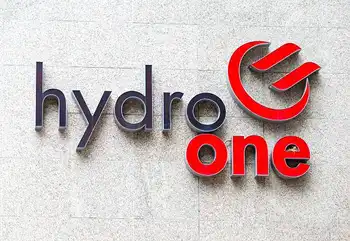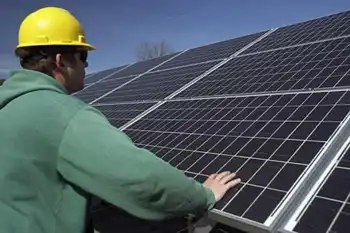Green power producers get an election lift
Shares in upstart energy producers like Plutonic Power Corp rose steeply after the May 12 election on the belief that a provincial call for clean power projects will proceed.
After a campaign marked by divisions on energy and environmental policy, voters reelected the Liberals, who favor independent power production. The rival New Democratic Party had called for a moratorium on private energy projects.
Shares in Vancouver, B.C.-based Plutonic surged as much as 21 percent the day after the election as uncertainty eased about projects they have on the table, said chief executive Donald McInnes in an interview. "I was euphoric and relieved."
Plutonic and its financial backer General Electric have submitted two joint bids, including a massive $4 billion, 1027-megawatt project that includes 17 run-of-river hydro projects on Bute Inlet streams. The bids have turned Plutonic into the poster child for the power production debate.
"There's been a pervasive, overwhelming nervousness in the investment community about political stability in British Columbia with respect to the government and how the election outcome would affect our industry," said McInnes.
"There has been many institutions that said, look, just get through the election. I would rather buy your stock at a higher price but knowing the outcome."
British Columbia Hydro and Power Authority, which is mandated to make the province self-sufficient in electricity by 2016, is expected to announce winners from a crowded field of proposals by the end of June.
The utility, which last year set a target of 5,000 gigawatt hours of new power production annually, was flooded with 68 proposals that would produce a total 17,000 gigawatt hours of power annually.
Other publicly traded bidders include Canadian Hydro Developers Inc, Finavera Renewables Inc, Run of River Power Inc, Innergex Renewable Energy Inc, and Swift Power Corp.
An electricity importer for the past 10 years, BC Hydro forecasts that demand will grow between 20 percent and 35 percent over the next 20 years.
There are currently several dozen run-of-river projects in B.C., but they generate just a fraction of the provincial electricity supply. The systems divert water from a river and feed it through pipes with a large drop that allows the water to power turbines.
Naikun Wind Energy Group Inc, which is proposing the country's first offshore wind farm under the call for clean energy, watched its stock jump from 50 Canadian cents to 84 cents over one week surrounding the election.
"We saw a fairly significant jump ahead of the election and maybe that was some people seeing us as a hedge because most of the NDP rhetoric had been focused on the run-of-river projects and wind was not part of that," said chief executive Paul Taylor in an interview.
"At the end of day, I can't control the election and so we really didn't spend a lot of time focusing on that, we went about doing our business, we've been working on our Environmental Assessment application which, we got word (Friday), it's been accepted."
Naikun's proposed Hecate Strait project would produce 320 megawatts of power from 110 turbines.
Versant Partners analyst Massimo Fiore said the Liberal government is essentially transferring project risk from BC Hydro to independent power producers. In return, the utility signs long-term purchase contracts that "reduce the risk of the power producer, in terms of finding financing and debt."
Stock gains are a bonus. "If companies need to raise money following stock gains, then they'll be doing it at less dilutive terms," said Fiore, who follows Plutonic Power and rates the company's shares a "buy" with a one-year target of $5.60.
Related News

Frustration Mounts as Houston's Power Outage Extends
TEXAS - Houston is enduring significant frustration and hardship as a power outage stretches into its fourth day amid a sweltering heatwave. The extended blackout has exacerbated the challenges faced by residents in one of the nation’s largest and most dynamic cities, underscoring the critical need for reliable infrastructure and effective emergency response systems.
The power outage began early in the week, coinciding with a severe heatwave that has driven temperatures to dangerous levels. With the city experiencing some of the highest temperatures of the year, the lack of electricity has left residents without essential cooling, contributing to widespread discomfort…




